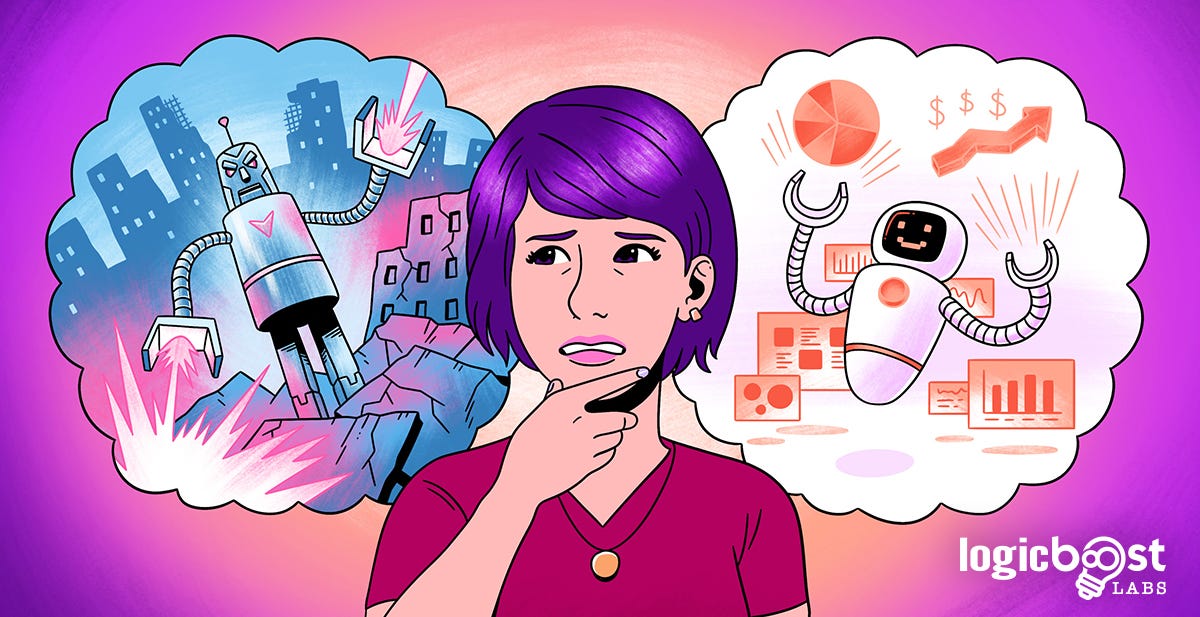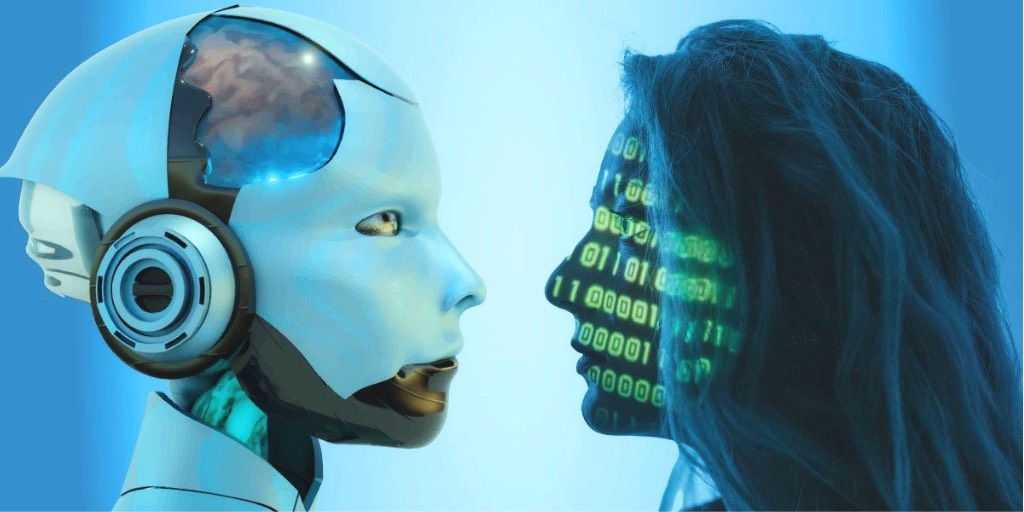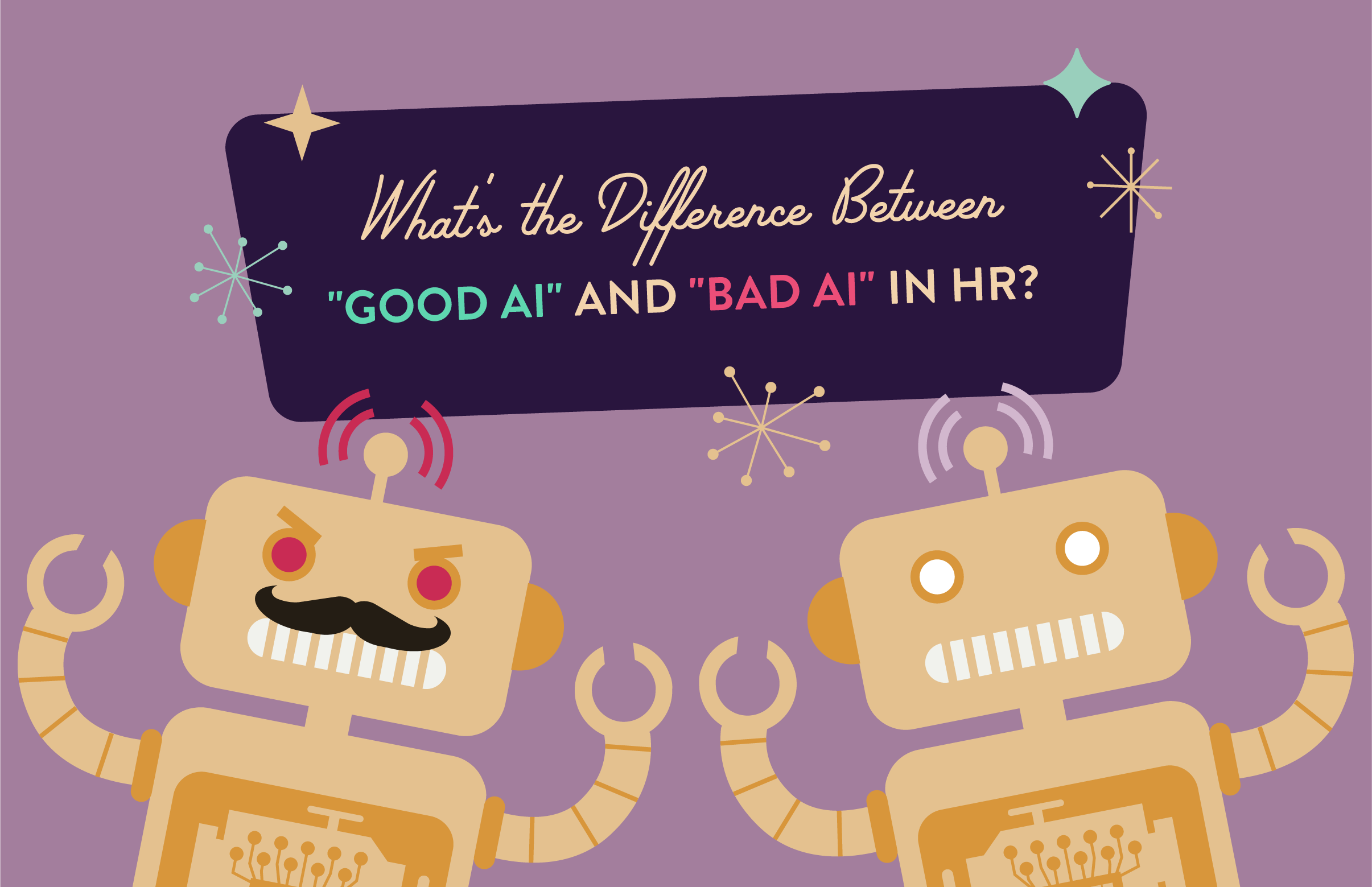Artificial intelligence (AI) is rapidly transforming our world, promising to revolutionize industries, improve our lives, and solve some of humanity’s greatest challenges. However, this powerful technology also raises profound questions about its impact on society. Is AI a force for good, or does it pose a threat to our future?
The answer, as with most complex issues, is not simple.
This exploration delves into the multifaceted nature of AI, examining its potential benefits and risks, its capabilities and limitations, and its implications for human interaction and the future. By understanding the various facets of AI, we can better navigate its development and ensure its responsible use for the betterment of humankind.
AI’s Impact on Society

Artificial intelligence (AI) is rapidly transforming various aspects of our lives, from the way we work and communicate to the way we access information and receive healthcare. Its potential to revolutionize society is immense, bringing both opportunities and challenges.
Benefits of AI
The potential benefits of AI are vast and extend across various sectors.
- Healthcare:AI can analyze medical images, diagnose diseases, and personalize treatment plans, leading to improved accuracy and efficiency in healthcare delivery. For instance, AI-powered systems are being used to detect cancer cells in mammograms with greater accuracy than human radiologists, potentially saving lives and reducing misdiagnosis rates.
- Education:AI can personalize learning experiences, provide real-time feedback, and automate administrative tasks, making education more accessible and effective. AI-powered tutoring systems can adapt to individual learning styles and provide personalized instruction, while intelligent grading systems can free up teachers’ time for more meaningful interactions with students.
- Transportation:AI is driving the development of autonomous vehicles, which have the potential to reduce traffic accidents, improve traffic flow, and increase accessibility for people with disabilities. Self-driving cars can also reduce the need for parking spaces, leading to more efficient use of urban space.
Risks of AI
While AI offers significant benefits, it also poses potential risks that require careful consideration.
- Job displacement:One of the most prominent concerns is the potential for AI to automate jobs currently performed by humans. This could lead to widespread unemployment and economic disruption, especially in sectors like manufacturing and transportation.
- Privacy concerns:AI systems often rely on vast amounts of data, raising concerns about privacy and data security. The potential for misuse of personal data, such as facial recognition technology, is a significant ethical challenge.
- Ethical dilemmas:As AI systems become more sophisticated, they raise complex ethical questions about responsibility, accountability, and bias. For example, who is responsible for the decisions made by autonomous vehicles in the event of an accident? How can we ensure that AI systems are developed and deployed in a fair and unbiased manner?
Ethical Implications of AI
The ethical implications of AI development and deployment are crucial to ensure that its benefits are realized while mitigating potential risks.
- Bias and fairness:AI systems can inherit and amplify biases present in the data they are trained on. This can lead to discriminatory outcomes, particularly in areas like hiring, lending, and criminal justice. It is essential to develop AI systems that are fair, transparent, and accountable.
- Accountability:As AI systems become more autonomous, determining accountability for their actions becomes increasingly complex. Who is responsible if an AI system makes a harmful decision? Clear guidelines and mechanisms for accountability are essential to ensure ethical and responsible AI development.
AI’s Capabilities and Limitations

Artificial intelligence (AI) has made significant strides in recent years, demonstrating remarkable capabilities in various domains. However, it’s crucial to understand both its strengths and limitations to assess its true potential and impact on society.
AI’s Capabilities
AI systems are excelling in tasks that involve pattern recognition, data analysis, and optimization. They can process vast amounts of information, identify complex relationships, and make predictions with accuracy that surpasses human capabilities.
- Image and Speech Recognition:AI-powered systems are now highly proficient in recognizing objects, scenes, and faces in images, as well as transcribing speech into text. This has revolutionized fields like medical imaging, security systems, and virtual assistants. Examples include Google Photos’ automatic image labeling and Apple’s Siri voice assistant.
- Natural Language Processing (NLP):AI algorithms can understand, interpret, and generate human language. This enables tasks such as machine translation, sentiment analysis, and chatbot development. Examples include Google Translate and Kami.
- Robotics and Automation:AI is driving advancements in robotics, enabling machines to perform complex tasks with greater precision and efficiency. This has implications for manufacturing, logistics, and healthcare. Examples include Amazon’s automated warehouses and surgical robots used in minimally invasive procedures.
- Personalized Recommendations:AI algorithms are used by companies like Netflix and Amazon to analyze user preferences and provide personalized recommendations for products, movies, and other services. This improves customer experience and drives sales.
AI’s Limitations
While AI exhibits impressive capabilities, it still faces significant limitations. Current AI systems are often brittle, lack common sense reasoning, and struggle with tasks requiring creativity or genuine understanding.
- Lack of Common Sense:AI systems often struggle with tasks that require common sense reasoning, such as understanding social cues or interpreting ambiguous situations. For example, an AI might fail to understand that a phrase like “It’s raining cats and dogs” is a metaphor and not a literal statement.
- Limited Contextual Understanding:AI systems often struggle to understand the context of a situation or the nuances of human language. This can lead to misinterpretations and errors. For instance, an AI might misinterpret a sarcastic remark as a sincere statement.
- Inability to Exhibit Creativity:While AI can generate outputs based on existing data, it lacks the ability to truly be creative or innovative. It cannot come up with new ideas or solutions that go beyond its training data.
- Data Bias and Ethical Concerns:AI systems are trained on data, and if that data contains biases, the AI will inherit those biases. This can lead to unfair or discriminatory outcomes. Ethical considerations surrounding data privacy, algorithmic transparency, and responsible AI development are crucial.
AI and Human Interaction

The advent of AI has profound implications for human interaction, shaping how we communicate, collaborate, and build relationships. AI’s ability to process vast amounts of data and learn from patterns allows it to augment human capabilities, improve productivity, and create new forms of social interaction.
However, the integration of AI into human-centered systems presents challenges, raising concerns about human control, ethical implications, and potential unintended consequences.
Impact on Human Relationships and Social Interactions
The increasing presence of AI in our lives has the potential to significantly impact human relationships and social interactions. While AI can enhance communication and connection in some ways, it also poses potential risks to the quality and depth of our relationships.
- Increased efficiency and convenience:AI-powered tools like chatbots and virtual assistants can streamline communication and task management, freeing up time for other activities. This can improve efficiency and convenience, allowing individuals to connect with others more readily. For example, AI-powered translation tools can facilitate communication between people who speak different languages, bridging cultural barriers.
- Personalized experiences and recommendations:AI algorithms can analyze user data to provide personalized experiences and recommendations, tailoring content and interactions to individual preferences. This can lead to more engaging and fulfilling experiences, fostering a sense of connection and belonging. For example, AI-powered dating apps use algorithms to match users based on their interests and preferences, increasing the likelihood of finding compatible partners.
- Potential for social isolation and reduced empathy:While AI can enhance communication, it can also contribute to social isolation and reduced empathy. Overreliance on AI-powered communication tools can lead to decreased face-to-face interactions, potentially weakening interpersonal bonds and diminishing emotional intelligence. For example, spending excessive time interacting with virtual assistants or engaging in online communities can limit opportunities for real-world social interactions, potentially leading to feelings of loneliness and isolation.
- Ethical concerns about data privacy and manipulation:AI systems often collect and analyze vast amounts of personal data, raising concerns about privacy and potential manipulation. The use of AI in social media platforms, for instance, can lead to targeted advertising and the spread of misinformation, potentially influencing individuals’ opinions and behaviors.
This can undermine trust and erode the foundations of healthy relationships.
Enhancing Human Capabilities and Productivity
AI has the potential to enhance human capabilities and improve productivity across various domains, from healthcare and education to business and research.
- Augmenting human intelligence and decision-making:AI systems can analyze complex data sets and identify patterns that humans may miss, providing insights and recommendations to support decision-making. For example, AI-powered medical imaging systems can assist doctors in diagnosing diseases more accurately and efficiently, improving patient outcomes.
- Automating tasks and freeing up human time:AI can automate repetitive and mundane tasks, freeing up human time and resources for more creative and strategic endeavors. For example, AI-powered chatbots can handle customer service inquiries, allowing human agents to focus on more complex issues.
- Personalized learning and education:AI-powered learning platforms can adapt to individual learning styles and pace, providing personalized feedback and recommendations. This can enhance learning outcomes and make education more engaging and effective. For example, AI-powered tutors can provide personalized support to students, tailoring their instruction to their individual needs.
- Improving efficiency and productivity in the workplace:AI can automate tasks, optimize workflows, and provide insights to improve efficiency and productivity in the workplace. For example, AI-powered scheduling systems can optimize resource allocation and minimize downtime, improving overall productivity.
Challenges of Integrating AI into Human-Centered Systems
While AI offers significant potential benefits, integrating it into human-centered systems presents challenges that require careful consideration and responsible development.
- Ensuring human control and accountability:It is crucial to ensure that AI systems remain under human control and that humans are accountable for their actions. This requires establishing clear guidelines for AI development and deployment, as well as mechanisms for monitoring and oversight. For example, AI systems should be designed with safeguards to prevent unintended consequences and ensure that humans retain ultimate control.
- Addressing ethical concerns and biases:AI systems can inherit biases from the data they are trained on, leading to unfair or discriminatory outcomes. It is essential to address ethical concerns and mitigate biases in AI development and deployment, ensuring that AI systems are fair, transparent, and accountable.
For example, AI algorithms used in hiring processes should be carefully evaluated to ensure that they do not discriminate against certain groups of individuals.
- Preventing unintended consequences and ensuring safety:As AI systems become increasingly complex, it is crucial to anticipate and mitigate potential unintended consequences. This requires rigorous testing and evaluation, as well as ongoing monitoring and adaptation to ensure that AI systems remain safe and reliable. For example, self-driving cars should be thoroughly tested in various real-world scenarios to identify and address potential safety risks.
AI’s Future and its Implications

The future of AI holds immense potential, with advancements in algorithms, computing power, and data availability driving rapid progress. This evolution will significantly impact various aspects of society, creating both opportunities and challenges.
The Future of AI Development
The future of AI development is marked by a continuous pursuit of greater intelligence and capabilities. Research and development in areas such as deep learning, reinforcement learning, and natural language processing are driving the creation of increasingly sophisticated AI systems.
These advancements will likely lead to the emergence of AI that can perform tasks previously considered exclusive to humans, such as creative problem-solving, decision-making in complex situations, and even emotional intelligence.
Potential Benefits and Risks of Advanced AI
Advanced AI systems, with their enhanced capabilities, could revolutionize various sectors, offering significant benefits while also posing potential risks.
Potential Benefits
- Increased Efficiency and Productivity:AI can automate repetitive tasks, freeing up human resources for more complex and creative endeavors. This can lead to increased efficiency and productivity across various industries, from manufacturing to healthcare.
- Improved Decision-Making:AI can analyze vast amounts of data and identify patterns that humans might miss, enabling better-informed decision-making in areas such as finance, healthcare, and transportation.
- Personalized Experiences:AI can tailor experiences to individual preferences, providing personalized recommendations in areas such as entertainment, education, and healthcare.
- Scientific Breakthroughs:AI can accelerate scientific discovery by analyzing complex data sets, simulating experiments, and identifying potential solutions to complex problems.
Potential Risks
- Job Displacement:As AI automates tasks previously performed by humans, there is a concern about widespread job displacement. This could lead to economic instability and social unrest.
- Bias and Discrimination:AI systems trained on biased data can perpetuate and amplify existing societal biases, leading to discriminatory outcomes in areas such as hiring, lending, and criminal justice.
- Privacy Concerns:The collection and analysis of personal data by AI systems raise concerns about privacy violations and the potential misuse of information.
- Security Risks:AI systems can be vulnerable to cyberattacks, which could lead to data breaches, system failures, and even physical harm.
Ethical Considerations and Societal Implications
The continued evolution of AI raises crucial ethical considerations and societal implications that require careful attention and proactive measures.
Ethical Considerations
- Accountability and Transparency:It is essential to establish clear guidelines for accountability and transparency in the development and deployment of AI systems. This includes understanding how AI systems make decisions, ensuring that they are not biased, and holding developers and users accountable for their actions.
- Fairness and Equity:AI systems should be designed and deployed in a way that promotes fairness and equity for all individuals, regardless of their background or circumstances. This requires addressing potential biases in data and algorithms and ensuring that AI systems are accessible to all.
- Privacy and Data Protection:Robust safeguards must be in place to protect individuals’ privacy and data security in the age of AI. This includes implementing data privacy regulations, ensuring informed consent for data collection, and providing individuals with control over their personal data.
- Human-AI Collaboration:The development and deployment of AI should prioritize human-AI collaboration, where AI systems augment human capabilities rather than replacing them entirely. This requires careful consideration of how AI can be integrated into existing workflows and how human skills and expertise can be leveraged alongside AI.
Societal Implications
- The Future of Work:AI will likely transform the nature of work, leading to both job creation and displacement. It is crucial to invest in education and training programs to equip individuals with the skills needed for the future workforce. This includes promoting digital literacy, critical thinking, and problem-solving skills.
- Social and Economic Inequality:The benefits of AI could be unevenly distributed, potentially exacerbating existing social and economic inequalities. It is essential to develop policies and initiatives that ensure equitable access to AI’s benefits and mitigate potential negative impacts on vulnerable populations.
- Governance and Regulation:The rapid pace of AI development necessitates robust governance and regulatory frameworks to address ethical concerns, mitigate risks, and ensure responsible innovation. This includes establishing clear guidelines for AI development, deployment, and use, as well as creating mechanisms for oversight and accountability.
- The Future of Humanity:The long-term implications of AI on human society are complex and multifaceted. It is essential to engage in ongoing dialogue and research to understand the potential impact of AI on human values, relationships, and the very nature of being human.
Outcome Summary

The journey into the world of AI reveals a complex tapestry of possibilities and challenges. While AI holds immense potential to improve our lives, it also presents ethical dilemmas and risks that demand careful consideration. The key to harnessing AI’s power lies in striking a balance between its transformative potential and the need for responsible development and deployment.
As we continue to advance in this field, fostering open dialogue, ethical frameworks, and collaborative efforts will be crucial in shaping a future where AI serves as a force for good.
Key Questions Answered
Is AI sentient or conscious?
Current AI systems are not sentient or conscious. They are sophisticated algorithms that can process information and perform tasks, but they lack the ability to experience emotions, self-awareness, or independent thought.
Will AI eventually surpass human intelligence?
The question of whether AI will surpass human intelligence is a subject of ongoing debate. While AI has made significant progress, it still faces limitations in areas like creativity, common sense reasoning, and emotional intelligence.
What are the ethical implications of AI in healthcare?
AI in healthcare raises ethical concerns such as data privacy, algorithmic bias, and the potential for over-reliance on AI systems, which could lead to human error.
How can we ensure that AI is used responsibly?
Ensuring responsible AI use requires robust ethical frameworks, regulations, transparency, and ongoing public discourse. It also involves developing AI systems that prioritize human well-being and minimize potential risks.
